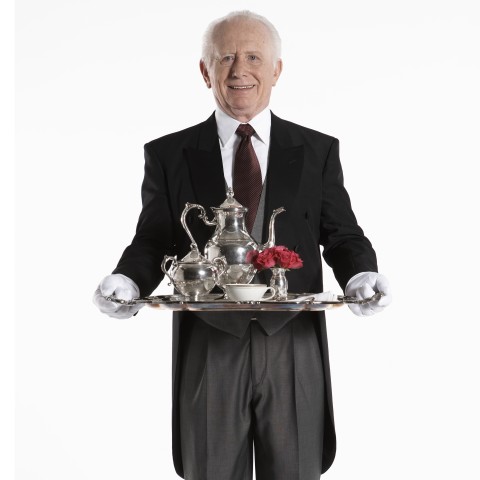
Did you know that even native French speakers make lots of mistakes when using their own language? Some grammatical mistakes are so common that they become the new normal.
Idiomatic expressions such as au temps pour moi have been incorrectly spelled autant pour moi for so many decades that most people don’t even know they’re doing it wrong. And don’t get me started on speakers improperly using the conditional case instead of the indicative.
My point is that it’s no big deal to make French mistakes, as long as you can express yourself. As you come closer to fluency, you’ll have time to figure out what mistakes you’re still making and how to address them. And this is exactly what this guide is about.
In this article, we’ll list the most common mistakes people make when learning French, as well as some more advanced French mistakes for experienced students. We’ll cover a wide range of categories, from false friends to gender agreement, pronunciation, and word order. By the end of this guide, you should be better able to spot and correct French mistakes, some of which are very easy to fix.
 Table of Contents
Table of Contents
- Gender and Agreement
- Faux-amis
- Conjugation
- Word Order
- Word Choice
- Pronunciation
- The Most Embarrassing French Mistakes
- Le Mot De La Fin
1. Gender and Agreement
What’s the most common mistake non-native speakers make? Gender agreement, without a doubt!
This is one of those typical French mistakes that allow us to pick out foreign learners, because these are mistakes that natives don’t usually make.
As you probably already know, French nouns—including inanimate objects, ideas, and abstract concepts—are either masculine or feminine.
For example, une chaise (“a chair”) is feminine, while un banc (“a bench”) is masculine.
Why is la route (“the road”) feminine but le trottoir (“the sidewalk”) masculine? It’s just plain arbitrary, but what really matters is: How do you know which gender a noun is?
| Feminine endings: Most words ending in -e or -ion
| Masculine endings: Words ending in -age, -ege, -é, -isme + Everything else
|
How can you avoid making gender mistakes? I recommend that you always learn new nouns with their article.
SoleilUn soleil, Le soleil (“A sun”)LuneUne lune, La lune (“A moon”)
2. Faux-amis
The origin of the English language is still fiercely debated among linguists, but you’ve probably noticed that there are many French words in English. If you start digging, you’d be surprised how many you can find! Nearly thirty percent of English words could be of French origin.
In a way, this is really convenient when you learn the language, because you can understand lots of words before you even study them:
- Un prince (“a prince”)
- Une giraffe (“a giraffe”)
- Un régime (“a regime”)
- Une salade (“a salad”)
And the list goes on!
On the other hand, you should be extra careful about “false friends”: Similar words with wildly different meanings. These words might make you really confused when you see the French shopping for pain and poison!
- Un pain (“a loaf of bread”)
- Un poisson (“a fish”)
Want to avoid making inconvenient French word mistakes? Here are some of the trickiest false friends you should keep in mind:
| You should not confuse… | With… |
| Actuellement – Currently | Actually – En fait / Effectivement |
| Effectivement – Actually / Indeed | Effectively – Efficacement |
| Eventuellement – Possibly | Eventually – Finalement |
| Sensible – Sensitive | Sensible – Raisonnable / Sensé |
| Compréhensif – Understanding | Comprehensive – Complet |
| Grave – Severe | A grave – Une tombe |
There are also false friends among verbs!
| You should not confuse… | With… |
| Attendre – To wait | To attend – Assister à |
| Demander – To ask | To demand – Exiger |
| Achever – To complete / To finish | To achieve – Atteindre |
| Décevoir – To disappoint | To deceive – Tromper |
| Injurier – To insult | To injure – Blesser |
| Prétendre – To claim | To pretend – Faire semblant |
| Supplier – To beg | To supply – Fournir |
| Retirer – To withdraw | To retire – Prendre sa retraite |
| Résumer – To summarize | To resume – Reprendre |
| Rester – To stay | To rest – Se reposer |
And of course, beware of faux-amis among nouns!
| You should not confuse… | With… |
| Le pain – Bread | Pain – La douleur |
| Une librairie – A bookshop | A library – Une bibliothèque |
| Un store – A blind / A window shade | A store – Un magasin |
| Un habit – Clothes | A habit – Une habitude |
| Le hasard – Chance | Hazard – Danger |
| Une fabrique – A factory | Fabric – Le tissu |
| Une issue – An exit | An issue – Un problème |
| Le pétrole – Oil | Petrol – L’essence |
| Une cave – A cellar | A cave – Une grotte |
Do you want more? Here’s a massive list of the French-English faux-amis.

Nobody likes false friends!
3. Conjugation
This is another set of mistakes French learners make regularly. Conjugation is not the easiest part of French, and has its fair share of traps. Let’s shed some light on the most common offenders.
1 – Reflexive Verbs
Are you familiar with reflexive verbs? They’re the verbs starting with se:
- Se lever (“To stand up”)
- Se souvenir (“To remember”)
For example, to use the verb se dépêcher (“to hurry”), you’d say: Je me dépêche. (“I hurry.”) Literally, this means “I hurry myself.”
Here are some more conjugation examples:
- Elle s’habille. (“She dresses.” – Literally: “She dresses herself.”)
- Nous nous asseyons. (“We sit.” – Literally: “We sit ourselves.”)
A common mistake among students of French is to skip the pronoun (me, te, se, nous, vous, se) and directly attach the subject to the verb:
Ils dépêchentIls se dépêchent. (“They hurry.”)Vous habillezVous vous habillez. (“You dress.”)
Most of the time, it just sounds incorrect. But in some cases, it can mean something different and lead to misunderstandings:
- Je me lave. (“I wash.”)
- Je lave. (“I clean.”)
2 – Passé Composé: Être or Avoir?
The passé composé is one of the most useful tenses in spoken French. It’s used to express things that happened in the past and are over now. It’s formed using an auxiliary + a conjugated verb.
| Présent | Passé composé |
| Je pars. (“I leave.”) | Je suis parti. (“I have left.”) |
| Je dors. (“I sleep.”) | J’ai dormi. (“I have slept.”) |
But wait… In the first example, we formed it using the auxiliary verb être, while in the second example, we used avoir. How do you know which one to choose?
We generally use avoir, except in these two cases:
1) We use être for all reflexive verbs (those starting with se).
For example: se calmer (“to calm down”)
- Présent: Je me calme. (“I calm down.”)
- Passé composé: Je me suis calmé. (“I have calmed down.”)
2) We also use être for a few other verbs, mostly those that reflect a change of direction, state, or movement.
Some examples:
- venir
- aller
- entrer
- sortir
- arriver
- partir
- tomber
- monter
- rester
- retourner
- descendre
- passer
- → Do you wish there was more information to quench your insatiable thirst for tenses? Then you’re in luck. Head to FrenchPod101.com and check out our Complete Guide on French Conjugation!
4. Word Order
Many common French language mistakes have to do with using the incorrect word order. Here are a few of the errors you should watch out for:
1 – Misplacing Adjectives
French adjectives can be placed before or after the noun they describe, and a common mistake is to place them on the wrong side of the noun.
The majority of French adjectives are placed AFTER the noun:
- Une maison bleue (“A blue house”)
- Un objet bizarre (“A strange object”)
However, some of the most common French adjectives are placed BEFORE the noun:
- Une grande maison (“A big house”)
- Un bel object (“A beautiful object”)
In most cases, if you misplace an adjective, the sentence will simply sound “off.” But it can also create confusion in situations where an adjective’s position changes its meaning:
- Un ancien hôpital (“A former hospital”)
- Un hôpital ancien (“An ancient hospital”)
- → For more information, you may want to check out our article on The 100 Most Useful French Adjectives with examples of where to place them.
2 – Inverting the Verb and Subject When Speaking
Do you know how academic teaching and old-school grammar books keep promoting a weird vintage style that makes you sound like a dusty vinyl? The kind of teaching program that makes you say “Excuse me sir, would you please be so kind so as to fetch me the check, please?” when locals just say “Check please.”
In French, we have various ways to ask questions. One for oral interactions, one for writing only, and one for both. The written form consists of inverting the verb and pronoun, as in:
- Voulez-vous du café ? (“Do you want coffee?”)
- As-tu bien dormi ? (“Did you sleep well?”)
Sadly, many French teachers keep promoting this form without warning their students that they’ll often sound awkward if they use it in oral conversations. The following lines sound much more natural:
- Vous voulez du café ? (This is just as polite, as it also uses the formal vous.)
- Tu as bien dormi ?
- → Do you want to know more about questions? Check out our complete guide on the most useful French questions and how to answer them!

Only if you dress like this guy, should you invert verbs and subjects.
3 – Misplacing Pronouns
To keep it simple, let’s just say that French pronouns have the unpleasant habit of moving around the sentence instead of sticking to the position of what they’re replacing.
- David mange cette pomme. (“David is eating this apple.”)
- David la mange. (“David is eating it.”)
- David parle aux voisins. (“David is talking with the neighbors.”)
- David leur parle. (“David is talking to them.”)
It gets pretty rough when you have multiple pronouns in one sentence. They all need to be in the right place, otherwise the sentence will make no sense.
- Sophie donne une pomme à David. (“Sophie gives an apple to David.”)
- Elle la lui donne. (“She gives it to him.”)
Elle lui donne la.Elle lui la donne.
- → The placement of pronouns is a very complicated topic, so I won’t go too far into the specifics. But feel free to dive into our comprehensive guide on French pronouns on FrenchPod101.com.
5. Word Choice
As you get more and more comfortable with the language, picking the right word for any situation is what will get you from mastery to fluency.
1 – Jour vs. Journée
Here, it’s a matter of time unit versus duration.
In a nutshell, we use jour when we’re talking about a specific moment or counting the days:
- C’est le jour de Noël. (“It is Christmas day.”)
- Je t’appellerai dans deux jours. (“I’ll call you in two days.”)
And we use journée when we’re talking about a duration of time:
- J’ai dormi toute la journée. (“I’ve slept all day.”)
- C’est une très belle journée. (“It’s a very beautiful day.”)
This same rule of thumb applies to An / Année, Matin / Matinée, and Soir / Soirée.
2 – Pour vs. Par
Many learners confuse pour and par, and for good reasons! It’s not always easy to pick the right one, so let’s summarize what each one is used for:
► POUR
- Intention: C’est pour toi. (“It is for you.”)
- Destination: Nous partons pour le Canada. (“We’re leaving for Canada.”)
- Duration: Nous partons pour deux semaines. (“We’re leaving for two weeks.”)
Here, we could also say: Nous partons pendant deux semaines. - Instead of: Je paye pour toi. (“I’m paying for you.”)
- Percent: Dix pour cent. (“Ten percent.”)
In most cases, if you’re translating a sentence using “for,” you should probably use pour:
- Merci pour ton aide. (“Thank you for your help.”)
- Merci de m’aider. (“Thank you for helping me.”)
► PAR
- During: Ne sortez pas par ce temps. (“Don’t go out with that weather.”)
- To start/end with: Je commence par toi. (“I’m starting with you.”)
- Frequency: Trois fois par mois. (“Three times a year.”)
- Distribution: Deux cookies par personne. (“Two cookies per person.”)
In many cases, you’d translate “by” as par:
- Je le prend par la main. (“I take him by the hand.”)
- Par hasard (“By change”)

Nothing like an awkward party on New Year’s Day! (Le jour de l’an)
3 – Y vs. EN
Ready for more pronouns? There are two that just keep confusing students!
► Y
Y is used to replace:
- à [quelque chose] (“to [something]” / “about [something]”)
- en [quelque chose] (“in [something]”)
This [something] is often a place, but not always, as long as it’s inanimate.
- Je veux aller à Paris. (“I want to go to Paris.”)
= Je veux y aller. (“I want to go there.”)
- Je pense à mon avenir. (“I’m thinking about my future.”)
= J’y pense. (“I’m thinking about it.”)
- Je crois en la science. (“I believe in science.”)
= J’y crois. (“I believe in it.”)
► EN
En is used to replace de(s) ____ (“some ____” / “of ____”)
You’ll see it a lot when talking about quantities.
- J’ai une pomme. (“I have an apple.”)
= J’en ai une. (“I have one.”)
- J’ai deux frères. (“I have two brothers.”)
= J’en ai deux. (“I have two of them.”)
- J’ai beaucoup de cheveux. (“I have lots of hair.”)
= J’en ai beaucoup. (“I have a lot of it.”)
- Il a du temps. (“He has time.”)
= Il en a. (“He has some.”)
4 – C’est vs. Il est
► C’EST
To identify a thing or a person, we use c’est (or the plural ce sont) + noun.
- C’est un livre. (“That’s a book.”)
- Ce sont des amis. (“These are friends.”)
- C’est un cousin. (“He’s a cousin.”)
- C’est Sophie, ma voisine. (“This is Sophie, my neighbor.”)
► IL EST
To describe a thing or a person, we use il est / elle est (ils sont / elles sont in plural) + adjective or profession.
- C’est un livre. Il est cher. (“This is a book. It’s expensive.”)
- Ce sont des livres. Ils sont chers. (“These are books. They are expensive.”)
- C’est un bon ami. Il est très gentil. (“This is a good friend. He’s really nice.”)
- C’est Sophie. Elle est belge. Elle est professeur. (“This is Sophie. She’s from Belgium. She’s a teacher.”)
5 – Connaître vs. Savoir
► Connaître is about knowledge, and it refers to being acquainted with a place or a person:
- Je connais cet endroit. (“I know this place.”)
- Je connais cette personne. (“I know this person.”)
- Je connais cette théorie. (“I know this theory.”)
► Savoir is more like “to know (a fact),” such as things you know by heart or abilities:
- Je sais que tu es là. (“I know that you’re here.”)
- Je ne sais pas ce que je fais. (“I don’t know what I’m doing.”)
- Je sais danser. (“I know how to dance.”)

Je connais le Kung Fu. (“I know Kung Fu.”)
6. Pronunciation
French is full of challenging sounds for foreign students, such as the French guttural [R], the [U], and a collection of difficult nasal sounds. However, these are not what I would call the trickiest aspects of French. They just take time and practice to master.
For now, I’ll focus on three seemingly trivial things that I’ve seen many students struggle with: the final silent letters, the liaisons, and the French words for “more” and “not anymore.” These are some of the most common French pronunciation mistakes, so you should definitely pay attention here.
1 – Final Letters
French words often end with consonants. Some are silent, others are not, and it’s hard to predict whether you should pronounce them or not.
Let’s talk about the CaReFuL letters.
If a French word ends with C, R, F, or L (consonants from the word CaReFuL), the final letter is usually pronounced. Otherwise, the final letter is silent. This rule is not without exceptions, but when in doubt, you can rely on this trick.
Here are some examples of words where the final letter is pronounced:
- Un truc (“A thing”)
- Un dortoir (“A dormitory”)
- Le chef (“The boss”)
- Avril (“April”)
There’s one big exception to the CaReFuL rule: verbs ending with the letters “ER” have a silent R:
- Aimer (“To love”)
- Manger (“To eat”)
- Tuer (“To kill”)
All other consonant letters are usually not pronounced:
- Froid (“Cold”)
- Le poing (“The fist”)
- Un coup (“A hit”)
- Le marais (“The swamp”)
2 – The Art of Liaison
When one word ends with a consonant and the next starts with a vowel sound (but not necessarily a vowel), we sometimes do what we call a liaison (linking). This link between two words is what makes the sentence “flow.”
- Vous avez (“You have”) is pronounced [vou zavé]
- Ils ont (“They have”) is pronounced [il zon]
- Les enfants (From the letter S to the sound [en], we do the liaison)
- Les hommes (Hommes starts with a consonant but with a vowel sound, so we do the liaison)
And sometimes, you don’t make the liaison, as in:
- Les chiens ont aboyé. (“The dogs have barked.”)
We don’t make the first liaison between chiens and ont. However, you link ont and aboyé. It’s pronounced : [Lé chien on taboyé].
- David et Alain (“David and Alain”)
There is never a liaison with et.
→ Everything you need to know about silent letters, liaison, and more, is explained in all its detailed glory in our Full Guide on French Pronunciation!

Il a une liaison. (“He’s having an affair.”)
3 – Plus vs. Plus
Depending on the context, plus means either “more” or “not anymore.”
You generally pronounce the S when it has a positive meaning (more):
- J’ai besoin de plus de temps. (“I need more time.”)
- J’en veux toujours plus. (“I always want more.”)
- Servez-nous plus de vin. (“Serve us more wine.”)
And you don’t pronounce the S when it has a negative meaning (not anymore):
- Je n’en peux plus. (“I can’t take it anymore.”)
- Je ne veux plus dormir. (“I don’t want to sleep anymore.”)
- Il n’est plus là. (“He’s not here anymore.”)
With some exceptions! (It wouldn’t be French, otherwise.)
1) When positive plus is directly followed by an adjective that starts with a consonant sound, the S is not pronounced:
- C’est plus drôle. (“It’s more fun.”)
- C’est plus fort. (“It’s stronger.”)
2) When positive plus is directly followed by an adjective that starts with a vowel sound, the S is pronounced like a [Z]:
- Elle est plus intelligente. (“She’s more intelligent.”)
- C’est plus intéressant. (“It’s more interesting.”)
7. The Most Embarrassing French Mistakes
To finish on a lighter note, here are some of the worst cases of mistranslation that could put you in a shameful situation. Save yourself the embarrassment and try to remember them!
| You should not confuse… | With… |
| She’s good. – Elle est douée. | Elle est bonne. – She’s really hot. |
| Literally, “good” translates to bonne in the feminine form. However, French is full of graphic slang and bonne, in the specific context of describing a woman, actually means “hot,” but in a much more sexual way than its English equivalent. As a result, if you hear your friend’s sister playing the violin and want to say that she’s really skilled, don’t say: Ta soeur est vraiment bonne ! (“Your sister is hot as hell!”) | |
| You should not confuse… | With… |
| I envy you. – Je t’envie. | J’ai envie de toi. – I want you. |
| “To envy” simply translates to envier. However, “to want” translates to avoir envie de. The difference is as subtle as it is important! If your friend is showing you his new shirt, describing how nice and cozy it feels, and you comment with J’ai envie de toi, your relationship might take an unexpected turn. | |
| You should not confuse… | With… |
| Preservative – Conservateur | Préservatif – Condom |
| This is a prime example of faux-ami, lurking in the dark, waiting to put you in embarrassing situations! When having dinner with your French hosts, you should probably NOT say: Dans mon pays, on met beaucoup de préservatifs dans la nourriture. (“In my country, we put lots of condoms in the food.”) | |

Wait, what did you just say?
8. Le Mot De La Fin
In this guide, you’ve learned everything about the most frequent mistakes in French, from common word misplacement to pronunciation, conjugation, and more advanced French mistakes. Did I forget any important topic that you’d like to read about?
It’s no use trying to remember it all, but if you read this article once in a while, try to keep as many as you can in a corner of your mind. Try to spot the mistakes you keep making, so you can work on them prioritarily. Just take it at your own pace. =)
FrenchPod101 also has tons of vocabulary lists with audio recordings and other free resources to boost your studies and keep your French-learning fresh and entertaining!
Remember that you can also use our premium service, MyTeacher, to get personal one-on-one coaching. Your private teacher can help you correct these common mistakes (and more) using assignments, personalized exercises, and recorded audio samples. Your teacher can review your own recordings as well, to help you improve your pronunciation.
Happy learning on FrenchPod101.com!

About the Author: Born and bred in the rainy north of France, Cyril Danon has been bouncing off various jobs before he left everything behind to wander around the wonders of the World. Now, after quenching his wanderlust for the last few years, he’s eager to share his passion for languages.









